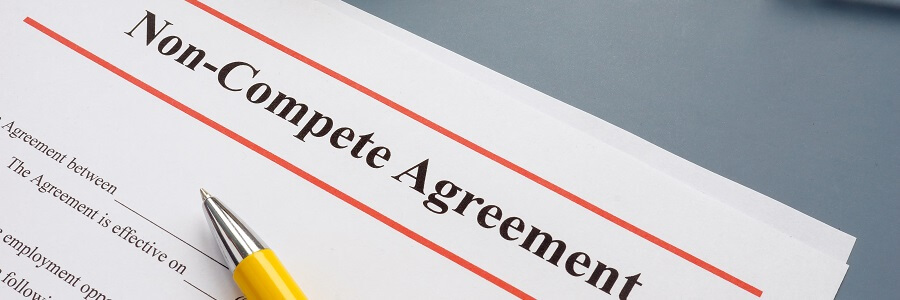AI and the Human Element: Why Both Working in Tandem Is Best for Recruiting

Quick look: For better or worse, artificial intelligence (AI) is infiltrating every aspect of business. Most recently, it’s been used for HR purposes as a way to simplify the recruiting process. Though it provides a certain level of convenience, can an algorithm be relied upon when it comes to hiring the right employees?
Actively recruiting and hiring qualified employees requires a full-time effort. Therefore, it’s no surprise small- and medium-sized (SMB) employers are looking for any areas, including AI, which would allow them to make the process easier on their operations and budget. However, as with any technology, AI must retain a complementary human element in order to provide context and keep efforts personalized. Otherwise, automation can lead to exclusionary practices and unintended bias.
In fact, there are laws restricting the use of AI in the hiring process to protect candidates against such bias. New York City recently passed legislation requiring employers to audit AI tools used for hiring or promoting employees prior to use. Additionally, they must notify potential candidates and employees within 10 days of use or risk being fined.
Similar laws in other areas of the country have also regulated AI analysis during the hiring process to ensure individuals have equitable opportunities. However, rather than solely viewing AI tools through a negative lens, it’s valuable to consider how they can complement current recruiting and hiring protocols as part of an all-encompassing professional employer organization (PEO) solution.
How AI works
Hiring decisions are ultimately made by humans but can be guided by AI. These types of automated tools generate insights which are sourced from thousands of data points to put a finer point on the recruiting process. These may be used to help with:
Sourcing prospects
Sorting through a high volume of job candidates is time-consuming and can prolong the recruiting phase. AI can expand sourcing both geographically and per job description. When there is a match for the data set provided, it provides automated recommendations based on the defined criteria to then be reviewed by human resources.
Prioritizing candidates
A slow time-to-hire process can cause candidates to look elsewhere for employment. To keep the hiring timeline moving, AI can maintain a prioritized candidate list to make decisions more quickly. This is helpful during active recruiting as well as strengthening a SMB’s supply chain of talent.
Promoting internal employees
AI can also work as a tool to review current employee profiles and gauge them as potential matches for advancement within the company. It saves on hiring costs while building employee loyalty and morale. Even if an employee isn’t currently looking for a new role, insights can guide them toward upskilling opportunities and potential future promotions.
Benefits of AI in recruiting
Recruiting remains a top challenge for business leaders and is a process which can become quite lengthy and drawn out without the right guidance. 84% believe AI will help them stay competitive in the future and give them an advantage in the job market. For many, the value of AI recruiting tools cuts down significantly on administrative tasks such as candidate screening and setting up applicant interviews.
AI also proves helpful for ongoing communication to answer questions candidates may have about the position and/or company. By creating scripts AI can follow, many of the frequently asked questions can be filtered out and addressed, freeing up time for a human response when necessary.
Saving time and creating efficiencies is crucial in today’s competitive landscape. By narrowing candidate selection based on listed qualifications and job descriptions, it’s theorized to speed up the recruitment process.
Drawbacks of AI in recruiting
However, a streamlined process using AI doesn’t come without its drawbacks. One of the main factors when hiring for a role is ensuring the right fit. AI delivers output verbatim without taking into account the context and nuance every resume includes. Additionally, skills, job descriptions, and industry jargon change all the time. Therefore, a potential candidate could be overlooked because their profile doesn’t exactly match the set requirements.
Moreover, it’s crucial for employers to be aware of legal regulations and repercussions regarding the use of AI tools. Employers should be mindful of how much they rely on AI to conduct their hiring processes. While it can be helpful to eliminate or reduce administrative tasks, personal attention is essential when making a connection with someone who may be joining the team.
How a PEO can help
A PEO offers a balance between applying technology and upholding a human-to-human approach. Both are important during the recruitment process and work best when used in tandem. ExtensisHR’s full-service PEO solution automatically includes access to recruiting services based on each company’s unique needs. It uses human and AI elements to secure qualified candidates and can be implemented whether or not an employer is actively seeking new employees.
The competitiveness of the job market often means leaders must be prepared to fill vacant positions without notice. Having these types of services in place allows them to maintain a steady pipeline of qualified applicants and experience less disruption from the recruiting process. Among the many benefits SMB leaders receive from ExtensisHR’s 45-day recruiting strategy are:
- Job description samples, guidance, and creation
- A pool of candidates from multiple platforms and 800 million profiles
- Customized outreach campaigns beyond the initial attempt
- Weekly consultations to discuss search adjustments, candidate progress, and market trends
- And more
The availability of AI is beneficial for HR but only to the point of how it’s used. Without having it as part of an overall strategy, it can actually become limiting versus expanding a company’s capabilities. By investing in AI and machine learning technology, it gives SMB leaders a competitive edge, and when part of a comprehensive suite of HR services, it helps to advance their business goals.
ExtensisHR offers full-scale HR administrative guidance and management, including risk and compliance services to ensure all AI tools being used meet legal requirements. To learn how a PEO solution may benefit your company, contact our team of HR experts today.



